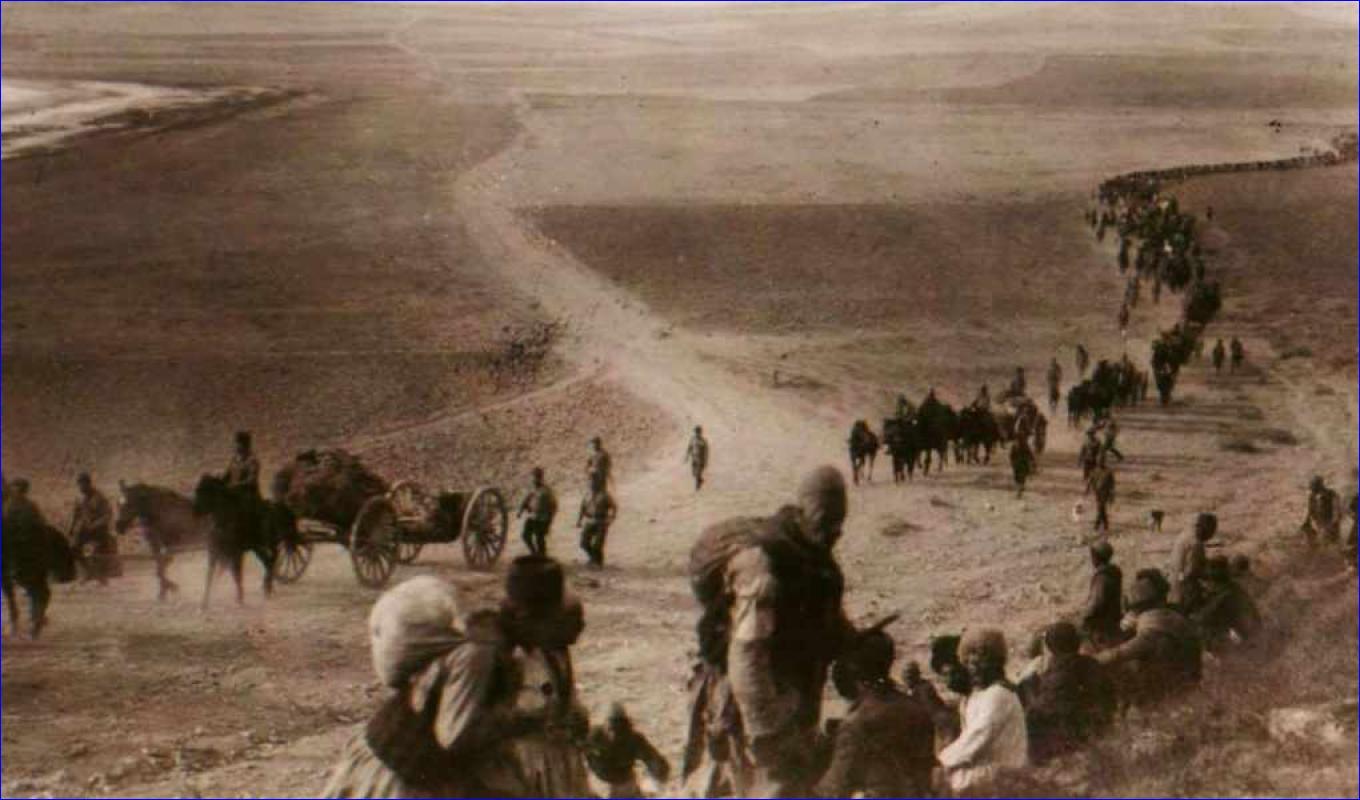


The explanatory section of the resolution cites Professor Joseph Yacoub
The most recent interview was conducted by Delphine Allaire from Vatican City and published by Vatican News on March 9, 2023 under the title Towards French Recognition of the Assyro-Chaldean Genocide.
On the question about the extent of the crimes committed against the Assyro-Chaldeans in the midst of the World War I, between 1915 and 1918, during the late Ottoman Empire, Yacoub says, that the tragedy has marked the Assyro-Chaldeans deeply. "It is characterized by a massive, deliberate and concerted extermination of the population, in the same way as the Armenians, with the aim of putting an end to any non-Turkish presence in the name of Jihad and the Islamism used for this purpose. More than 450 monasteries and churches were destroyed and desecrated. The same for schools," he adds.
Related: The Assyrian Genocide
In another question Delphine Allaire wanted to know why Assyrian Genocide suffered "late recognition" compared with the Armenian Genocide, which France, for instance, officially recognized in 2001, and on February 5, 2019, French President Emmanuel Macron declared April 24 as Armenian Genocide commemoration day. Professor Yacoub points out that the question of the Assyro-Chaldeans was well "known internationally between the years 1915 and 1925. Civil, religious and secular delegates came to the peace conference in 1919 to plead the cause of the Assyro-Chaldeans. The Vatican was also very well informed, the Secretary of State, Cardinal Pietro Gasparri in particular. The western world knew." But after 1925 "a sort of leaden screed eclipsed this question until 1980," he adds. With the emergence of the Assyrian diaspora research on the tragedy was freely possible compared with the situation in the homeland, and "the issue of recognition came on the agenda," Yacoub concludes.
Professor Yacoub elaborates also on the broader mission for the survival of all Middle-Eastern Christians and why it is so important that France to remain committed defending them.
A second interview was conducted by the Novelles d'Armenie Magazine and published in its March 2023 issue under the title Joseph Yacoub: For the official recognition of the Assyro-Chaldean Genocide.
The interviewer, Franck Gaillard, wanted to know how the positive legislative vote of the French Senate on the Assyro-Chaldean Genocide came into being and why the submission was not proposed as an amendment to the 2001 law on the recognition of the Armenian Genocide?
On the latter theme, Joseph Yacoub points out that the resolution considered the Assyro-Chaldean Genocide "as not collateral to other massacres, that is to say singular." Moreover, "several states have recognized it as such. This is the case for the Parliament of the Republic of Armenia. And that only reinforces, in turn, the validity of the Armenian Genocide," he emphasizes.
A third interview was conducted by Octave Larmagnac-Matheron for the philososphical monthly review (Paris): Philosophie Magazine and published on March 11, 2023 under the title "The Assyro-Chaldeans were victims of physical, cultural, religious and territorial genocide."
After Joseph Yacoub explains who the Assyro-Chaldeans are, the interview focuses on the question how the genocide was conducted, its motives and extent. A final question was related to what extend the the Europeans knew at that time about the ongoing genocide in Anatolia.
According to Yacoub, "as early as January 1915, reports appeared in French, Russian, English, German, Italian, Arabic, Danish, Armenian and Syriac, in which the Armenians and Assyro-Chaldeans were associated and mentioned simultaneously as victims. The accuracy and factuality of these numerous documents confirmed the tragedy in an irrefutable manner. The information provided by impartial witnesses, coming from various sources of different nationalities." On all the facts and places abundant documentation is available, covering all the regions where the drama took place." They show that the massacres were "combined and concerted" acts by the Ottoman authorities and that they were in no way isolated or uncontrolled elements," concludes Yacoub.
1 Joseph Yacoub is honorary professor of political science at the Catholic University of Lyon and was the first holder of UNESCO's Chair of "Memory, Cultures and Interculturality." He is an expert on minority issues, human rights and Eastern Christianity. He is the author of numerous books and articles on the Assyro-Chaldeans and the Oriental Christians. His most recent book (co-written with his wife Claire Yacoub) is Martyrs par amour en Perse. Mgr Sontag et ses trois compagnons, (Martyrs for Love in Persia. Bishop Sontag and his three Companions).

or register to post a comment.